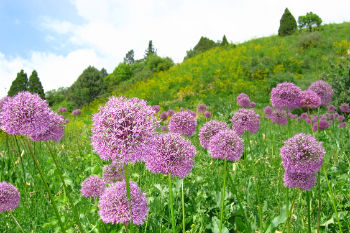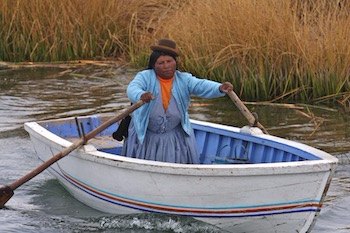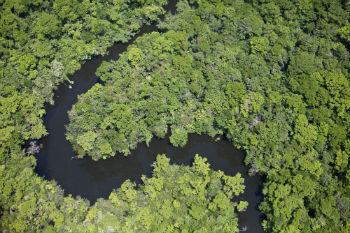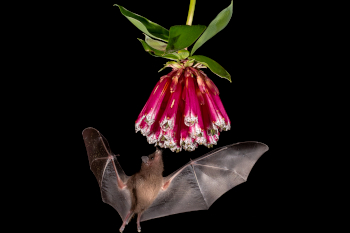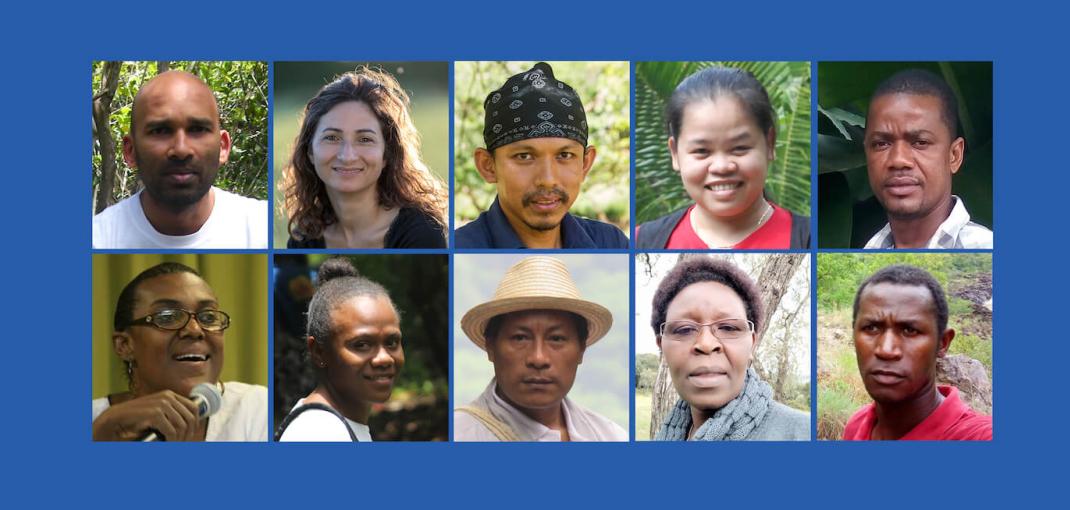Awatef Abiadh serves as the North Africa Program Officer for CEPF’s Mediterranean Basin Regional Implementation Team (RIT). She is based at Ligue pour la Protection des Oiseaux/BirdLife France. In this role, she has worked with more than 50 CEPF grantees in Morocco, Tunisia, Algeria, Libya and Cabo Verde. She also serves as the CEPF gender focal point for the region, helping grantees consider gender when developing their projects.
In Libya in particular, where conservation is nascent and challenging, Dr. Abiadh has been instrumental, helping CEPF grantees physically receive funds and adapt their projects when security risks are involved. She has also hosted masterclasses and providing training sessions on CEPF processes.
Dr. Abiadh was raised in the Tunisian countryside and formed a close bond with nature at an early age. She began her career as a teacher, first at schools and then with the University of Tunis where she established an environmental club.
Through a volunteer experience helping to manage invasive species on Zembretta, Dr. Abiadh became fascinated by the process of rehabilitating ecosystems through concrete actions. She changed her career focus to conservation and, in 2012, earned a Ph.D. in biology from the University of Tunis with the highest honors. She has since published myriad scientific papers related to ecology and evolution.
In Her Words
CEPF: Could you briefly describe your CEPF-funded project?
Awatef: I’m part of the regional implementation team for the Mediterranean Basin. Our role is to oversee the CEPF investment, to make sure the funding goes to projects which work on the right sites and species as guided by the ecosystem profile. We also build the technical capacities of the civil society organizations we fund, so they can manage their grants and projects well and become stronger for future conservation work.
CEPF: What have been the most important results the RIT has been able to accomplish thus far?
Awatef: The region has been gradually getting stronger, and the grantees we support have achieved many great conservation triumphs, such as new protected areas in Algeria, co-management of a marine protected area in Tunisia and reinforcing cooperatives in Morocco.
Through the RIT, we’ve facilitated new partnerships between organizations, we’ve strengthened networks through introducing new partners and building on existing data, we’ve created synergies with other donors in the region, and we've given opportunities to civil society in countries where other donors couldn’t go, for example in Libya.
CEPF: What is the most significant lesson learned from your work with CEPF?
Awatef: Over the 7 years, we learned a lot from project implementation in the Mediterranean Basin in general and in North Africa in particular. One of the important lessons is that with a small amount of funding, small, local organizations can acheive big impacts if they involve local people.
CEPF: Conservation work is difficult and often comes with setbacks. What keeps you motivated?
Awatef: Nothing is difficult with persistence. There are challenges, of course, especially when we work with different levels of stakeholders dealing with different fields of interest—from coastal management to cultural landscapes—with the one main objective of empowering people for biodiversity conservation.
The conservation achievements in the region keep me and my colleagues motivated. We are involved with our grantees when we approve their activities, and we share their challenges, victories and also their failures.
CEPF: What advice would you give to budding conservationists?
Awatef: If I have any advice to give to conservationists, it would be to believe that change is possible and that it's not too late. We still have a chance to conserve natural resources from extinction if we use the appropriate tools and work together.
